

Book Now to Experience
F8 Hair Regrowth Treatment
1 Minute Self-Registration
Date should not be before minimal date
Author: Leila Tan|Updated: 23 July 2024
Many people in Singapore suffer from hair loss, particularly those who are under stress, have poor nutrition, or have hormone abnormalities. Loss of hair can impair a person's self-esteem and confidence, as well as cause social and psychological problems. Thankfully, on the market, there are numerous shampoos for hair loss that promise to prevent hair loss and stimulate hair growth. Nevertheless, how efficient are these shampoos? And what elements should be considered while selecting a shampoo for hair loss? Today, we will examine these concerns and offer advice on how to pick the finest shampoo for hair loss for your specific needs.

1
How Does Hair Loss Shampoo Affect Our Scalp?
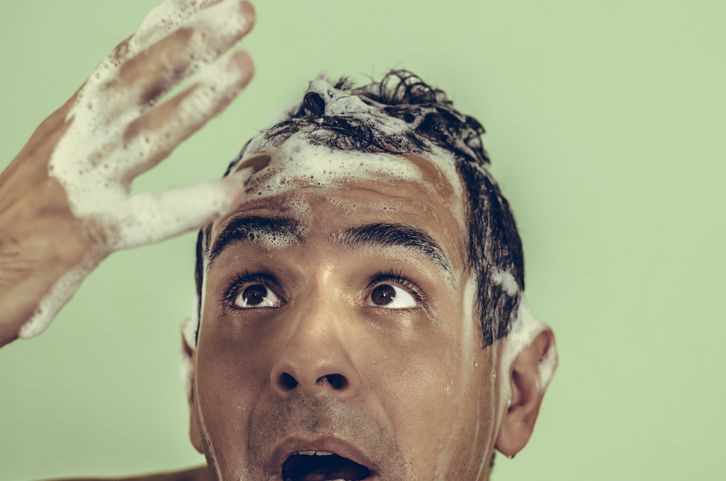
Shampoos for hair loss target the underlying cause of hair loss, which is typically the thinning or shrinking of hair follicles. Little structures on the scalp that produce hair strands are called hair follicles. When hair follicles are robust and healthy, they can create thick, long hair. Yet, when hair follicles are injured or irritated, they might generate hair that is thin and fragile or cease generating hair entirely. The objective of shampoos for hair loss is to nourish, protect, and stimulate hair follicles, as well as wash the scalp of debris, oil, and dead skin cells that can clog pores and inhibit hair development. The following are typical components used in hair loss shampoos:
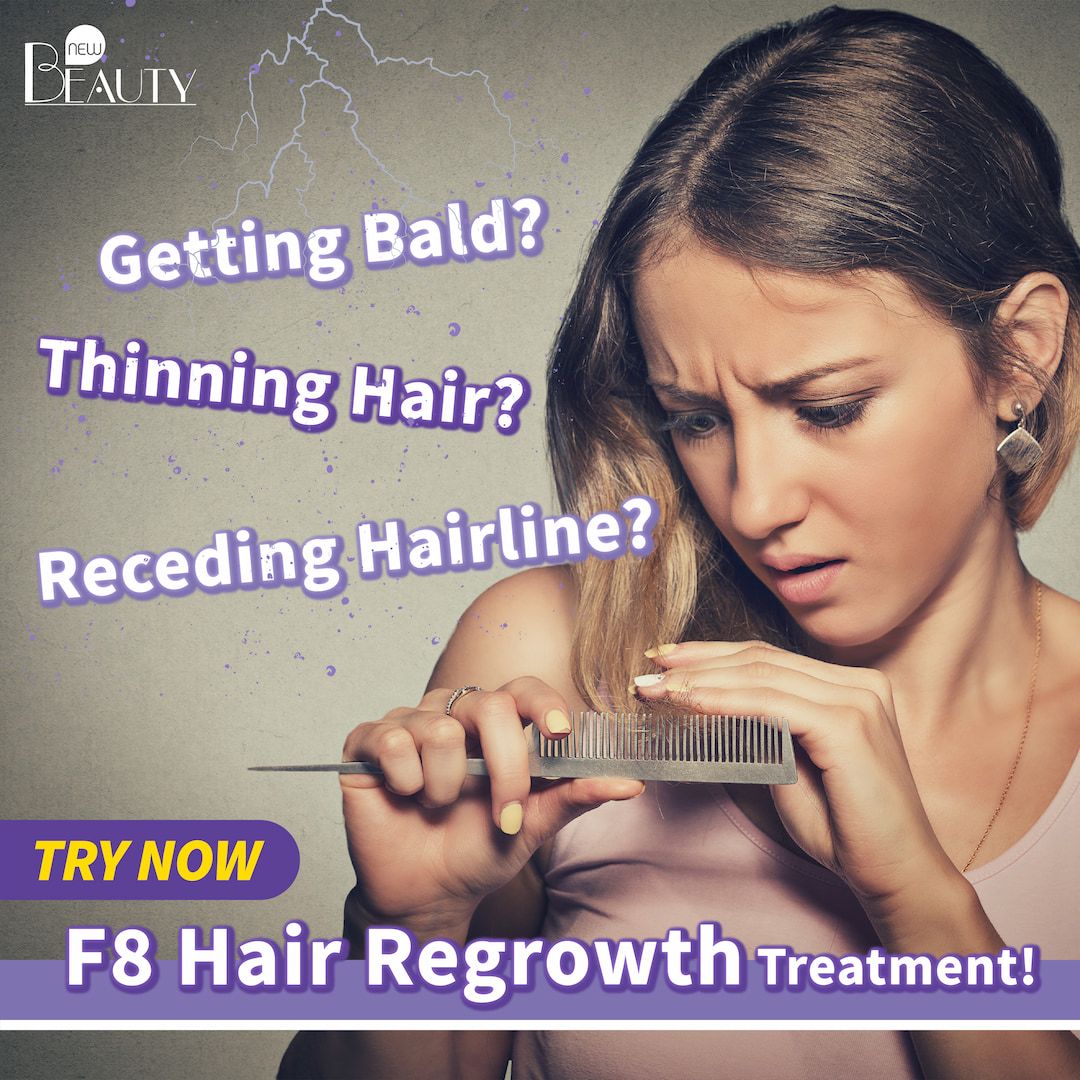

2
Available Types of Hair Loss Shampoo
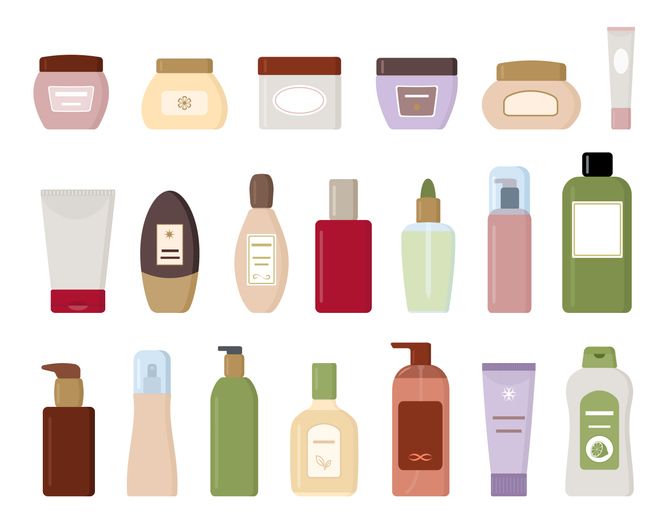
There are numerous types of shampoos for hair loss on the market, each catering to a unique set of demands and tastes. Examples of frequent types include:
These shampoos are designed to inhibit or diminish the synthesis of DHT, the hormone responsible for male pattern baldness. DHT attaches to receptors on hair follicles, causing them to shrink and ultimately die. Anti-DHT shampoos contain substances that block or counteract DHT, such as saw palmetto, nettle extract, pumpkin seed oil, and ketoconazole.
These shampoos are meant to give volume and thickness to hair that is thinning or fine. Volumizing shampoos contain chemicals such as panthenol, biotin, collagen, and keratin that coat each hair strand in a protective coating and make it appear thicker and fuller.
This type of shampoo is intended to encourage new hair development by stimulating dormant hair follicles with active chemicals such as minoxidil, biotin, or peptides. Examples of shampoos that promote hair development include PHS Hair Science Fortify Shampoo and Nioxin System 2 Anti-Hair Loss Shampoo.

3
Common Ingredients in Hair Loss Shampoo

Caffeine
Caffeine is a stimulant that can boost blood flow to the scalp and supply more oxygen and nutrients to hair follicles. Caffeine can also inhibit the effects of the hormone dihydrotestosterone (DHT), which causes hair follicles to shrivel and finally die.
Biotin
Biotin is an essential vitamin for healthy hair growth. The protein that makes up the hair shaft is keratin, which is strengthened by biotin. Moreover, biotin prevents hair breakage and split ends.
Niacin
Niacin is another vitamin that can stimulate hair development by increasing blood flow to the scalp and nutrient delivery to the hair follicles. Niacin can also aid in repairing damaged DNA in hair cells and preventing premature hair ageing.
Zinc
Zinc is an essential mineral for keeping a healthy scalp and preventing hair loss. Zinc aids in the regulation of sebum production, which is the natural oil that lubricates the scalp and hair. Moreover, zinc helps to combat bacteria and fungi that can cause infections and inflammation of the scalp.
Herbal extracts
Herbal extracts are natural substances produced from plants that promote hair development in numerous ways. The following are popular herbal extracts found in shampoos for hair loss:
Ginseng
Ginseng has been used in traditional medicine for ages because of its anti-inflammatory, antioxidant, and anti-stress characteristics. Ginseng can promote the development of new hair follicles and prevent hair loss caused by stress or hormonal imbalance.
Rosemary
Rosemary is a herb with a nice scent and a calming effect on the scalp. Rosemary can increase scalp blood flow and boost hair growth. Moreover, rosemary can reduce dandruff and scalp inflammation.
Aloe vera
Aloe vera is a plant with a gel-like material that can nourish and moisturise the scalp and hair. Aloe vera can relieve irritation, itching, and dryness on the scalp, in addition to repairing damaged hair cuticles and enhancing shine.


4
Is Hair Loss Shampoo Ineffective?
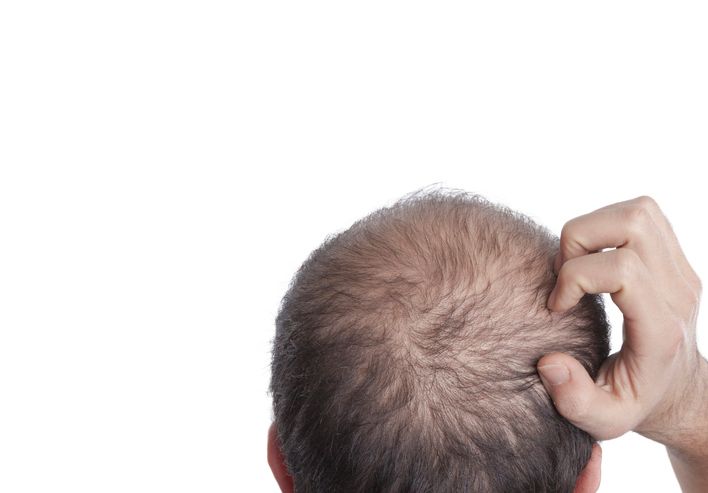
If you are experiencing mild to severe hair loss due to numerous circumstances, hair loss shampoo might be a useful addition to your hair care regimen. But, it is not a magic remedy that may reverse permanent or severe hair loss caused by genetics or medical disorders.
Shampoo for hair loss can only be effective if used consistently for at least three to six months. If you are experiencing hair loss, you have likely tried a variety of products that claim to prevent or reverse it. Nevertheless, the response is not so straightforward. Depending on the cause of your hair loss, the shampoo's components, and how you apply it, shampoos for hair loss can have a variety of effects.

Book Now to Experience
F8 Hair Regrowth Treatment
1 Minute Self-Registration
Date should not be before minimal date

5
The Right Shampoo Corresponds to Hair Type: How to Pair?
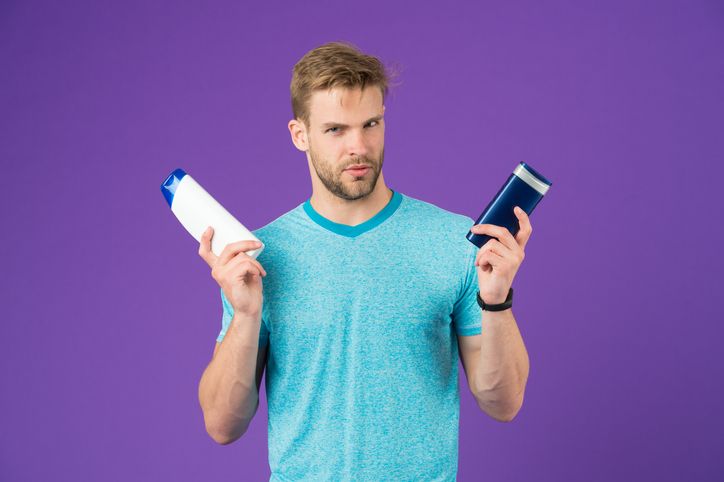
If you want to keep your hair healthy and shiny, you need to choose the right shampoo for your hair type. But how do you know which shampoo is best for you? Here are some tips on how to pair your shampoo with your hair type to reduce hair fall.
First, you need to identify your hair type. There are four main categories: straight, wavy, curly, and coily. Each hair type has different characteristics and needs different care. Here is a brief overview of each hair type:
Straight hair
This hair type has no natural curl or wave and tends to be fine and smooth. It can get oily easily and may lack volume and body.
Wavy hair
This hair type has a slight bend or wave and tends to be medium in thickness and texture. It can get frizzy and dry and may lose its shape throughout the day.
Curly hair
This hair type has a defined curl or spiral and tends to be coarse and thick. It can get dry and brittle and may shrink when wet.
Coily hair
This hair type has a tight curl or coil and tends to be very dense and textured. It can get tangled and break easily and may have different curl patterns on different parts of the head.
Once you know your hair type, you can look for a shampoo that suits your needs. Here are some general guidelines on how to pair the shampoo with different hair types:
Hair loss shampoos for straight hair
Look for a shampoo that cleanses your scalp and removes excess oil without stripping your hair of its natural moisture. You may also want a shampoo that adds volume and body to your hair. Avoid shampoos that are too moisturising or heavy as they can weigh down your hair and make it look greasy.
Hair loss shampoos for wavy hair
Look for a shampoo that hydrates your hair and enhances your natural wave without making it frizzy or limp. You may also want a shampoo that defines your curls and adds shine to your hair. Avoid shampoos that are too harsh or drying as they can damage your hair cuticle and cause frizz.
Hair loss shampoos for curly hair
Look for a shampoo that nourishes your hair and restores its moisture balance without disrupting your curl pattern. You may also want a shampoo that reduces frizz and adds bounce to your curls. Avoid shampoos that contain sulphates or silicones as they can strip your hair of its natural oils and cause buildup.
Hair loss shampoos for coily hair
Look for a shampoo formula that moisturises and strengthens hair elasticity without causing shrinkage or tangles. You may also want a shampoo that detangles your hair and adds softness to your coils. Avoid shampoos that contain harsh chemicals or alcohols as they can dry out your hair and cause breakage.


6
What Alternatives are there to Hair Loss Shampoo That Can Promote Hair Growth?
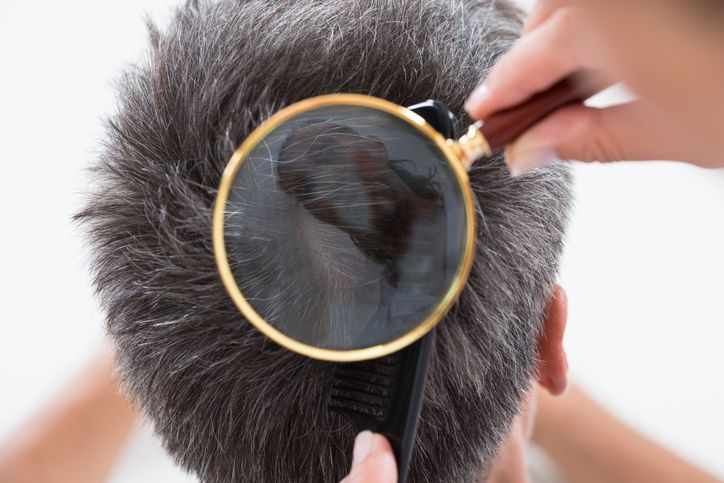
Shampoo for hair loss is not a panacea that can treat all types of hair loss. In truth, some causes of hair loss have nothing to do with the scalp or hair follicles, but are instead caused by genetics, hormones, stress, sickness, medicine, or nutrition. In certain instances, shampoo for hair loss may have no effect. The following are frequent treatments for hair loss, along with suggestions that may help you:
Medications
Certain medications can reduce or stop hair loss by influencing the hormones or immune system involved in hair development. Finasteride and minoxidil, for instance, are two FDA-approved medications that help treat male and female pattern baldness, respectively. Unfortunately, these medications have adverse effects and restrictions, and they may not be effective for everyone.
Suggestion:
For this, we will leave the dosage and the suggestion to the professionals. If you are considering using medication to treat hair loss, it is important to consult with a qualified physician or dermatologist. They can help you determine if medication is the right option for you and can prescribe the appropriate medication for your specific condition.
It is also important to understand that while medications can be effective in treating hair loss, they may have side effects and may not work for everyone. It is important to discuss the potential risks and benefits with your doctor before starting any medication.
Hair transplant
Hair transplant surgery involves transplanting healthy hair follicles from one area of the scalp to an area where hair is thinning or balding. This can produce a long-lasting effect that appears natural. Yet, this treatment is costly, intrusive, and requires numerous treatments and recovery time.
Suggestion:
Hair transplant surgery can be an effective way to improve your appearance and self-confidence. Good candidates for a hair transplant include men with male pattern baldness, women with thinning hair, and anyone who has lost some hair from a burn or scalp injury. However, it is not a good option for women with widespread hair loss throughout the scalp, people who do not have enough donor hair sites, people who form keloid scars after injury or surgery, or people whose hair loss is due to medication such as chemotherapy.
Low-level laser therapy (LLLT)
Low-level laser therapy (LLLT) is a non-invasive treatment that stimulates blood flow and cellular activity in the scalp using light radiation. This can promote the health and growth of current hair, as well as prevent additional hair loss. Unfortunately, this procedure is ineffective for severe hair loss and requires maintenance treatments on a monthly basis.
Suggestion:
At New Beauty, there is an answer to your hair loss problem. F8 Hair Regrowth Treatment is a non-invasive treatment that promotes hair growth and improves scalp health. It utilises low-level laser energy and a hair growth serum to stimulate inactive hair follicles and strengthen the hair papilla. The treatment also repairs capillaries and enhances their microcirculation, providing essential nutrients to the hair follicles. As a result, patients will experience increased hair growth, stronger hair strands, and reduced hair loss.
This treatment is safe for both men and women who have concerns about their hair and scalp, including hair loss, thinning hair, oily or sensitive scalp, receding hairline, balding crown, alopecia areata, scalp inflammation, male or female pattern hair loss, postpartum hair loss, and more.
Natural remedies
Certain natural components, such as biotin, vitamin E, coconut oil, aloe vera, onion juice, etc., can nourish and strengthen the hair and scalp. These substances can be used topically or consumed as dietary supplements. Unfortunately, there is little scientific evidence to demonstrate their efficacy in addressing hair loss.
Suggestion:
There are a number of natural therapies that may stimulate hair growth. Among these treatments are scalp massage, which you can start by massaging the scalp daily, eventually helps to enhance blood circulation and hair density, or try using coconut oil that can aid in hydrating hair and preventing damage.
It is essential to note that the efficacy of various treatments varies depending on the individual and the underlying reason for hair loss. Before beginning any new treatment, it is always advisable to visit a healthcare practitioner.
Read More

7
Last Few Words
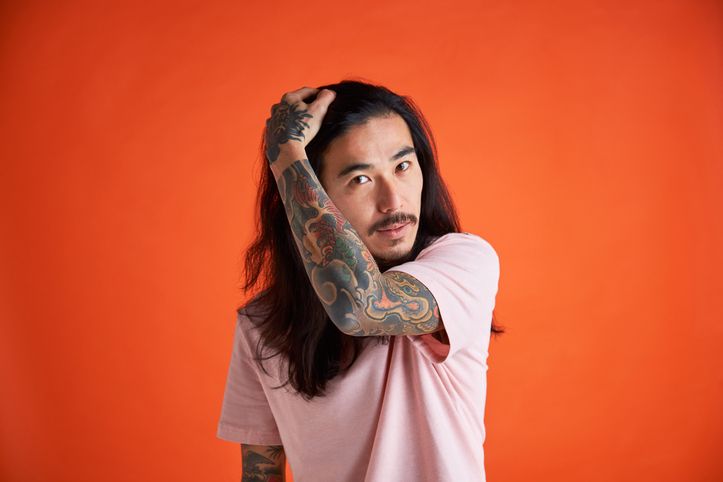
Some people with moderate to severe hair loss due to scalp disorders such as dandruff, irritation, or fungal infection may benefit from hair loss shampoo. Unfortunately, it is not a panacea that works for all persons and hair loss types.
If hair loss persists, you may need to try with several shampoos until you find the one that works best for you, or seek out additional anti-hair loss techniques to regain thick and natural hair textures!
FAQ
What is shampoo for hair loss?
Hair loss shampoo is a type of shampoo designed to encourage hair growth and prevent hair loss. In addition to nourishing and stimulating hair follicle, these shampoos often wash the scalp of debris, oil, and dead skin cells that can block pores and hinder hair growth.
How does shampoo for hair loss work?
Shampoos for hair loss are effective because they address the root cause of hair loss, which is often the thinning or shrinking of the hair follicle. To encourage healthy hair growth, the shampoos contain chemicals that nourish, protect, and stimulate hair follicle. In addition, they cleanse the scalp to eliminate dirt, oil, and dead skin cells that can clog pores and impede hair development.
What are some common elements included in shampoos for hair loss?
Caffeine, biotin, niacin, zinc, and herbal extracts including ginseng, rosemary, and aloe vera are typical components in shampoos for hair loss. Together, these nutrients nourish and stimulate hair follicles, support healthy scalp conditions, and enhance hair health.
How long does it take for shampoo for hair loss to be effective?
It may take several months of constant use of hair loss shampoo to see effects. For optimal effects, it is essential to use the shampoo regularly and according to the label's directions.
What are the alternatives to using shampoo for hair loss?
Absolutely, there are other options to utilise shampoo for hair loss to stimulate hair growth. They include pharmaceuticals like finasteride and minoxidil, hair transplant surgery, low-level laser therapy (LLLT), so try out F8 if you would like to say farewell to thinning hair and strengthen hair at once!

Book Now to Experience
F8 Hair Regrowth Treatment
1 Minute Self-Registration
Date should not be before minimal date
Recommended Articles
COPYRIGHT© NEW BEAUTY MANAGEMENT LIMITED 2026. ALL RIGHT RESERVED.




